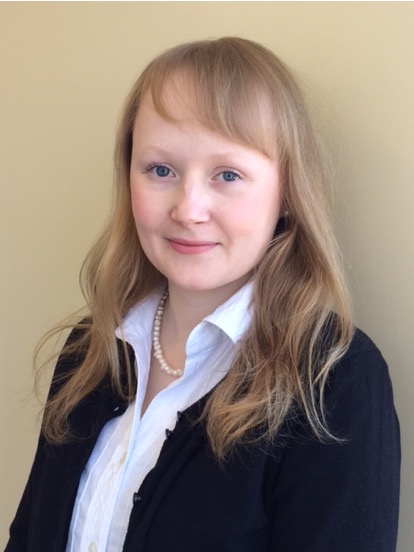Laura Bracaglia and Alexandra Piotrowski-Daspit Win K99 Awards

Two postdoctoral associates, Laura Bracaglia and Alexandra Piotrowski-Daspit, both in the lab of Prof. Mark Saltzman, have received the prestigious Pathway to Independence Awards (K99/R00) Awards from the National Institutes of Health (NIH).
The purpose of the program is to increase and maintain a strong cohort of new and talented, NIH-supported, independent investigators. This program is designed to facilitate a timely transition of outstanding postdoctoral researchers or clinician-scientists from mentored research positions to independent, tenure-track or equivalent faculty positions, and to provide independent NIH research support during the transition that will help these individuals launch competitive, independent research careers.
 Alexandra Piotrowski-Daspit’s award is for research that aims to advance a genome editing-based therapeutic strategy for cystic fibrosis (CF). It focuses on developing nucleic acid therapeutics for a specific genetic mutation (W1282X) that results in CF. She’s also working to identify the best ways to use polymer-based particles to deliver the therapies. This research will build tools for therapeutic screening and enhancing fundamental knowledge of drug delivery mechanisms, incorporating key steps towards clinical translation. Overall, this work has the potential to contribute to the treatment of devastating genetic diseases, significantly improving the health of patients and reducing the burden of illness.
Alexandra Piotrowski-Daspit’s award is for research that aims to advance a genome editing-based therapeutic strategy for cystic fibrosis (CF). It focuses on developing nucleic acid therapeutics for a specific genetic mutation (W1282X) that results in CF. She’s also working to identify the best ways to use polymer-based particles to deliver the therapies. This research will build tools for therapeutic screening and enhancing fundamental knowledge of drug delivery mechanisms, incorporating key steps towards clinical translation. Overall, this work has the potential to contribute to the treatment of devastating genetic diseases, significantly improving the health of patients and reducing the burden of illness.
Piotrowski-Daspit also recently received an award from the Cystic Fibrosis Foundation (Path to a Cure (PTAC) Postdoc-to-Faculty Transition Award).
 Laura Bracaglia’s award is for her work on developing a therapeutic strategy to treat damage to the endothelium of transplanted kidneys caused by ischemia reperfusion injury, which can happen after a period of lack of oxygen. Her research proposes using polymer-based particles to deliver and release siRNA inside the cells, which will prevent two primary injury outcomes by temporarily silencing the key molecules involved in the propagation of inflammation and reduction in vascular density. This modular approach will allow us to substantially reduce the impact of IRI for kidney transplant, making organs more resistant to injury and improving clinical outcomes. The award supports her transition to a primary investigator. It also provides salary support and research funds for an additional one to two years as a postdoctoral associate at Yale. It will then provide three years of research funds when she obtains a faculty position.
Laura Bracaglia’s award is for her work on developing a therapeutic strategy to treat damage to the endothelium of transplanted kidneys caused by ischemia reperfusion injury, which can happen after a period of lack of oxygen. Her research proposes using polymer-based particles to deliver and release siRNA inside the cells, which will prevent two primary injury outcomes by temporarily silencing the key molecules involved in the propagation of inflammation and reduction in vascular density. This modular approach will allow us to substantially reduce the impact of IRI for kidney transplant, making organs more resistant to injury and improving clinical outcomes. The award supports her transition to a primary investigator. It also provides salary support and research funds for an additional one to two years as a postdoctoral associate at Yale. It will then provide three years of research funds when she obtains a faculty position.

